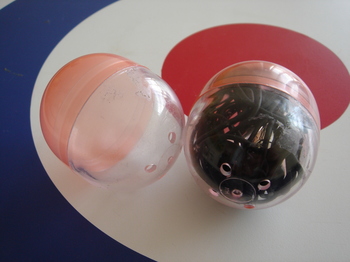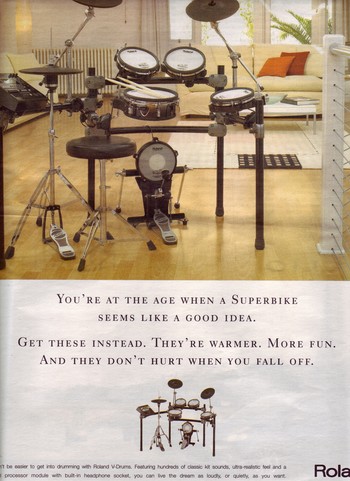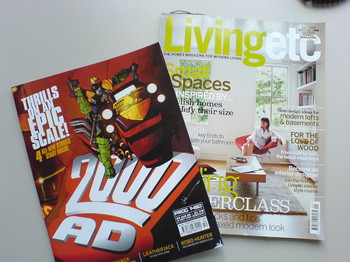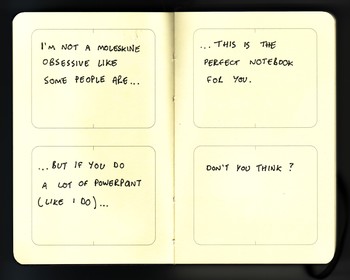I've been doing a lot of traveling the last few years. Lots of quick one or two night trips. And I'm starting to get slightly obsessive about doing it in the most effective way possible; meaning - as light as possible, as quick as possible, as stress-free as possible. Hopefully, this'll get me on LifeHacker.
Assumption: Hand-baggage only. You only need to check baggage if you're going for a month or more. In my humble opinion.
These are in no particular order.
1. Wear old pants and socks. Leave them behind.
Everyone has an old pair of pants in the drawer that really they should be throwing out. (Meaning underwear for our American friends.) And a few pairs of socks that have seen better days. Take them / wear them on your trip. Then just throw them away. Don't bother bringing them back. That way you'll save a bit of weight/bulk on the return leg. (Or if you're going to the States buy some new stuff there - it's the home of good, cheap underwear. Especially Ross.)
2. Decant stuff. Go to Muji. Liberate business class toothpaste.
Don't take big bottles of shampoo and stuff. Decant what you need into those marvelous little bottles you can get at Muji. When you land you can wander into business class and nick one of those excellent little toothbrush/toothpaste sets from the business class comfort pack. Someone always leaves one behind. Or go to Minimus which specialises in travel size stuff.
3. Don't unpack too much. Nets and eggs.
Traveling light and quick means not losing stuff and not having to double check you've got everything. So I never unpack too much - certainly don't put stuff in various drawers and the bathrooms and stuff. That way you'll tend to forget things. I put all the loose stuff - change, tickets, keys, cameras, phone on the same table - so I know I'll only have to check one place before I leave and I use small mosquito head nets as stuff sacks for, well, stuff. I put t-shirts in one and pants and socks in another. Then I just hang them up in the room somewhere and you don't have to check for them. Since you might well be using just one bag having stuff in stuff sacks helps you keep things organised. It means you don't have to hunt through your underwear when looking for something in your bag or removing your laptop at security.

And, you know those little plastic capsules you get toys in out of vending machines? Egg-shaped things? They are the perfect things to organise your little electronics bits - earphones, memory sticks. That kind of stuff. Perfect for stopping your earphones getting tangled.
(See, I told you I was getting obsessive.)
4. Reading matters.
I have a terrific far of being stuck on a plane with nothing to read. And when you can easily be stuck on the tarmac for hours on end this is a real risk. So I always have about 5 novels on my LifeDrive as back-up. And another spare on the Memory Stick in my phone. You never know.
And I only take books I'm prepared to leave on the plane when I've finished them. Leaving books behind is a nice feeling.
5. Good use of time.
Getting from check-in to plane can b a miserable and wasteful experience. All the shuttling around and
keeping your eye on the displays and your ear on the announcements means it's hard to focus on doing any productive work. I like to use the time to call friends and people I've not spoken to for a while - not about work stuff. It's something you can do in a departure lounge, you can keep doing it while walking from gate to gate and you don't have to concentrate too much or write stuff down. And it often turns a grim bit of time into a good one.
6. Phone chargers.
If you're going for less than a week, don't take a phone charger, take a spare battery. (Charged up.) Obviously. They're not too expensive and they're much much lighter than those horrible big chargers. If you have to take a charger consider taking a car/cigarette lighter type. They're much smaller and you don't need an adaptor. This is obviously a good idea if you're renting a car but taxi drivers'll often let you plug in too.
7. Laptop - yes or no?
Yes - you can use it to watch movies and you don't need to take speakers for your ipod etc.
No - It slows you down at security. It's big and heavy. And you can replace it with web-based mail, Backpack for your files or a flash drive or ipod or something. Assuming you can get your hands on a computer wherever you're going. Otherwise I often just take the LifeDrive and a little folding keyboard. It's smaller than a laptop and secuirty don't want you to remove it from your bag.
8. Being quick through security.
Don't have big metal watch, big metal belt buckle, big shoes. Put everything in your bag before you get to the security check. If you're going through Schiphol much get a Privium card.
9. Passport, pocket.
Always keep your pasport and boarding pass in the same pocket so you can keep checking them easily. (You are obsessively checking for your passport all the time aren't you? It's not just me is it?) I tend to travel with a shirt with a decent sized breast pocket. That's where I keep passport and boarding pass so they're always in peripheral vision.
10. Being early is like being lucky
This is the most important thing. Being early is like being lucky. You get a better seat. You might even get an earlier flight. You get shorter queues. And you get to relax. Stress and frustration cause mistakes like leaving your bag at security or your passport at the check-in. And stress comes because air travel makes you feel out of control and short of options - you're basically cattle. And that makes us nervous in case things go wrong. But if you're early then you know that things can go wrong and you've got time to fix them. You still have options. So leave at least 30 minutes before you would have done. What are you going to do with that 30 minutes anyway? You're much better of people-watching at the airport.



